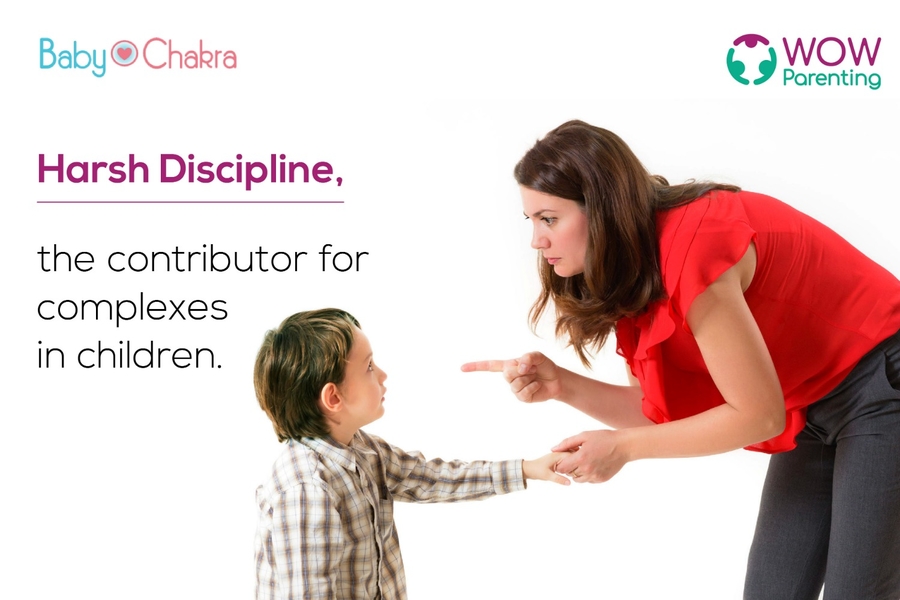
Harsh Discipline, The Contributor For Complexes In Children
20 Feb 2019 | 4 min Read
Narendra Goidani
Author | 64 Articles
Did you know there is something called ‘tough love’ and something called ‘rough love’?
‘Rough love’ is being harsh with your child thinking this harshness will improve your child.
Tough love is when, in your approach to discipline your child, there is respect. In your methods to discipline your child, there is patience. In your desire to improve your child, there is empathy. You understand the struggle your child is going through in coping with various things on its plate. But, since you know it is necessary, you are tough. In tough love, relationships do not get spoiled. In tough love, self-esteem does not fall.

Harsh discipline or rough love is very different.
Here is an example that will help you understand the difference, better.
Your child wants to watch a movie but the school project work is still pending. You know your child has been wanting to see this movie for weeks but the project work has to be submitted tomorrow.
Your child comes to you with a request may he be allowed to see the movie.
You hug the child, kiss the child and empathize with him. You help him understand that he delayed the project work without genuine reasons. You empathize by saying, “Even though I understand your pain, you must face the consequences for your choices”. You tell your child that until the project work is done, he cannot engage in other ‘comparatively non-essential’ activities.
He pleads. He promises. He expresses regret. He is teary eyed. You respectfully converse with him. Yet, you do not budge from your ‘tough love’.
What happens now is that…
The child will feel the pain of missing out on the movie but this experience will help him in the long run. Whenever there is work to be done, he will finish it on time. This is the result of tough love.
In this, you love the child and deal with the situation with respect for him in your heart. Your child may not like you that night. He might be angry too, but, in the long run, your child will thank you for lovingly teaching him discipline.
On the other hand…
In the same situation, if you scream at the child, shout at the child, make them fall in their own eyes, make them feel really low about themselves, it is practising of harsh discipline with ‘rough love’. Though your intentions are right, you say hurtful things like, ‘You cannot do anything right in life’. This is showcasing harsh discipline or rough love.
Let’s understand one thing here. Both ‘tough love’ and ‘rough love’ are born out of concern for the future of your child. Love is present in both situations.
In tough love, the hurt is superficial and for short-term. But, in the long term, it creates self-esteem and self-belief.

In rough love or practising of harsh discipline, the hurt is very deep and long-term. Rough love creates a complex in a child.
Here is a question for you. If you find that…
- your child does things at the last moment…
- he is irresponsible in a situation…
- he is giving excuses and passing on blames…
…will you practice ‘tough love’ or ‘rough love’?
May you ALWAYS practice TOUGH LOVE and NEVER EVER rough love.
A


Related Topics for you
Suggestions offered by doctors on BabyChakra are of advisory nature i.e., for educational and informational purposes only. Content posted on, created for, or compiled by BabyChakra is not intended or designed to replace your doctor's independent judgment about any symptom, condition, or the appropriateness or risks of a procedure or treatment for a given person.
